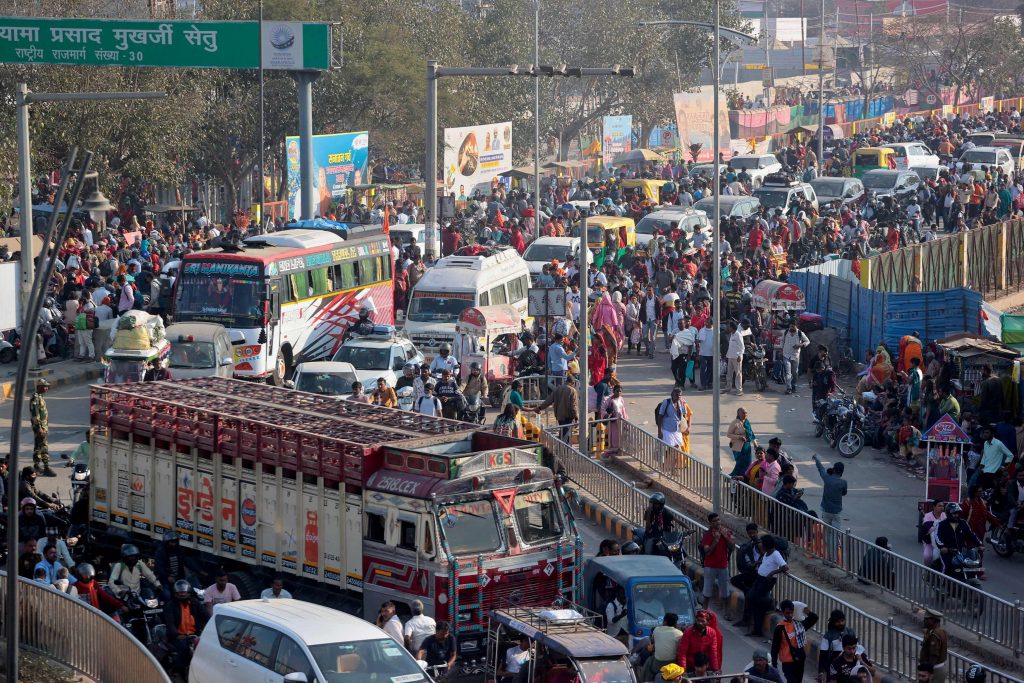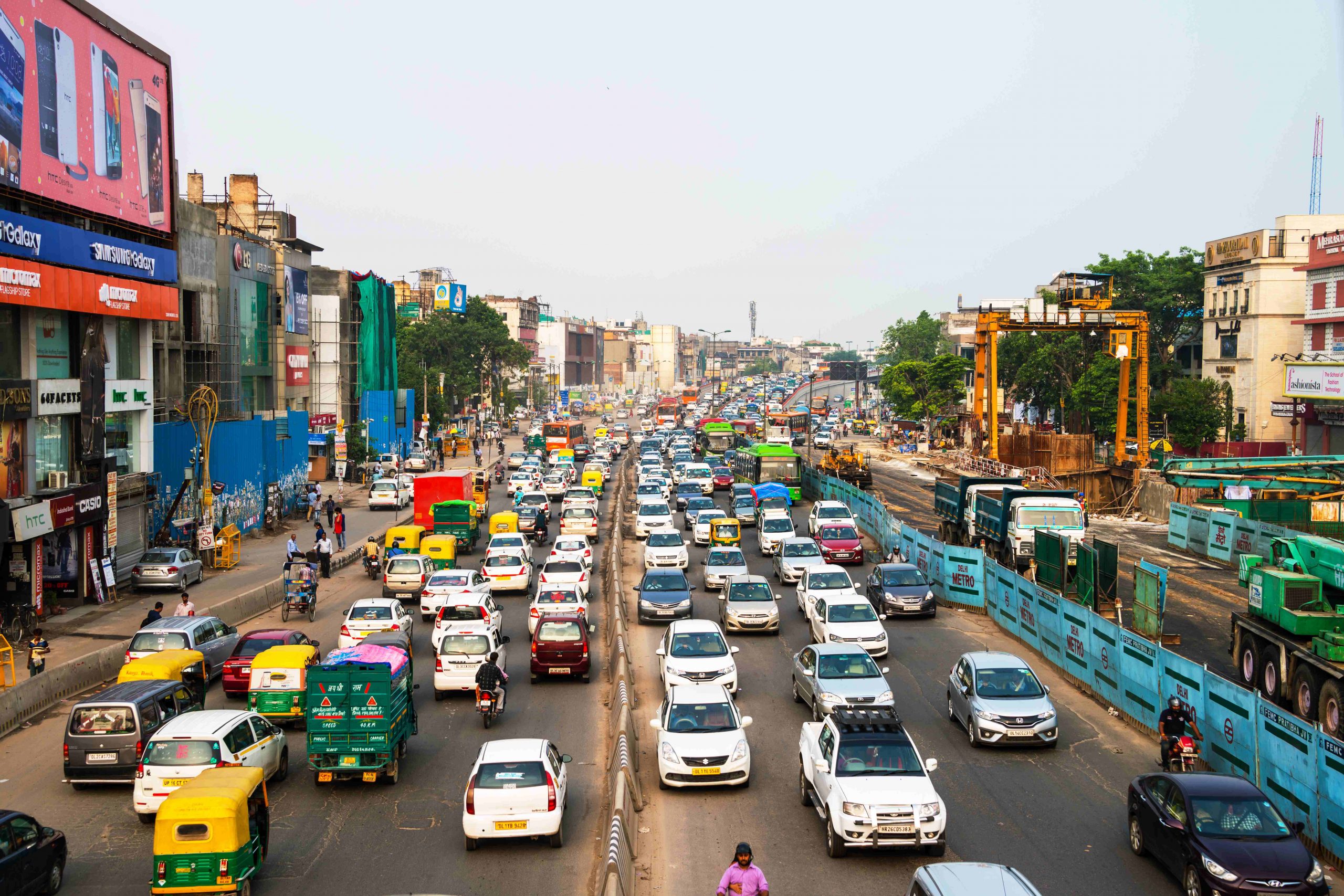NEW DELHI—When Amrita Mishra passed the bar exam, she rushed out to pick up one of the biggest perks of being a lawyer in India: an “Advocate” sticker to slap on the window of her car.
The decal, which includes a symbol of a white collar that lawyers wear in the country’s top courts, comes with superpowers, said Mishra. It keeps the traffic police off her back and scares male drivers who think women should concede right of way on the road.
“They look startled and back off,” she said.
Driving in New Delhi can be chaotic, but adding to the madness is an unusual caste system that gives unofficial preference to some less-than-essential workers. Lawyers, government officials, journalists and even retired military officers are among a set of professionals who adorn their private vehicles with decals to publicize their occupations and the special status they say it confers.

Not surprisingly, the practice is controversial. There are generally no laws that give preference to drivers with certain professions, outside of a few exceptions such as doctors, and some states have banned the use of stickers in private vehicles. But enforcement has been spotty.
The popularity of stickers—and the deference they can inspire—is partly a reflection of India’s longstanding caste system, in which some people command respect and others are scorned based on a social status determined at birth, said Surinder Jodhka, a professor of sociology at Jawaharlal Nehru University in New Delhi.
The educated class, especially in professions like law and media, want to flaunt their status in the hierarchy, he said. Same with the wealthy and connected.
“People self-identify themselves through the car they own and the stickers,” he said. “It needs to be translated into social status.”
Sandeep Tushir blazes through traffic barricades and closed streets. He parks wherever he fancies. When the 36-year-old runs late for school drop-off, he muscles aside other cars on the clogged highways of India’s capital city.
His ticket to freedom? Stickers emblazoned with “Police” plastered all over the front and back windshields.
“It makes everything so easy,” Tushir said. “We can navigate anywhere and no one stops us.”
Tushir works in financial services. He borrows his police inspector father’s car whenever he wants to cut through traffic. He printed the police stickers at a shop and affixed them to the windshields of the black SUV. The modifications were acceptable, he figured, because his father really is a cop and occasionally drives the car to a police station.
The stickers were useful during the Covid lockdowns, when most cars were barred from the roads, Tushir said. They also cut down on time spent ferrying his 9-year-old son to school and running errands.
“It works so well for our family purposes,” he said. “We get access anywhere.”
The Punjab and Haryana High Court, the common court for the two states in northern India, in 2020 banned the use of unauthorized emblems, including words like army, chairman and vice chairman, in the capital city of Chandigarh. It declared such practices an attempt to “browbeat” other drivers.
Madras High Court, in the southern Indian state of Tamil Nadu, issued a similar order in 2022. But after drivers openly flouted the regulations, the city’s police last summer declared war on stickers.
In a statement announcing the crackdown, the police said that the most-concerning stickers identified an affiliation with the press, the state or city government, the state-owned power company, or the police. The police department’s first enforcement action was removing police stickers from cop-owned cars parked at the Police Commissioner’s office, according to local media reports.
But some government officials say they need to jazz up their cars with impressive-looking regalia to get proper respect on the road.
V. P. Singh, the assistant director of health services for the northern Indian state of Uttarakhand, kitted out his government-issued car, a plain white sedan, with a bright-red license plate and red stickers stating “Uttarakhand Government.”
Everyone in his department modified their cars to boost the air of authority, he said. Without those obvious signs, he’d miss out on the benefits that come with a government posting, including zero fees on toll roads.
“It makes a good impression and you get many perks,” he said.
That hunger for respect on the roads has been turbocharged by the newly wealthy, who yearn for symbols to flaunt their riches and boost their status, said Jodhka, the professor. Many have learned they can climb the pecking order of Delhi traffic by buying bigger, fancier and more expensive vehicles.
Om Prakash, the 70-year-old owner of a car accessories shop, said people used to settle for buying stickers printed with “Govt. of India” or a job like cop or lawyer. But the nouveau riche, he said, have taken to decorating their cars with police sirens and flashing lights.
Four years ago, there was no demand for such accessories, which are illegal for private cars, he said. Now, at least 20 customers a day ask for those upgrades. Many are the wealthy offspring of small-time politicians or political workers. “For rich brats, it’s a way to enjoy their life,” he said.
Sachin Goyal, whose family runs a construction firm, has spent at least $3,000 retrofitting his SUV with flashing red police lights, sirens and tinted black windows.
The 22-year-old says he loves to go joy riding at night with friends, who have all added similar tweaks to their cars. Sometimes, they travel in a convoy 35-cars deep—blasting music and setting off their sirens.
“We use it on normal people,” he said. “They think we might be very important people, so they give way to us.”
Write to Shan Li at shan.li@wsj.com



